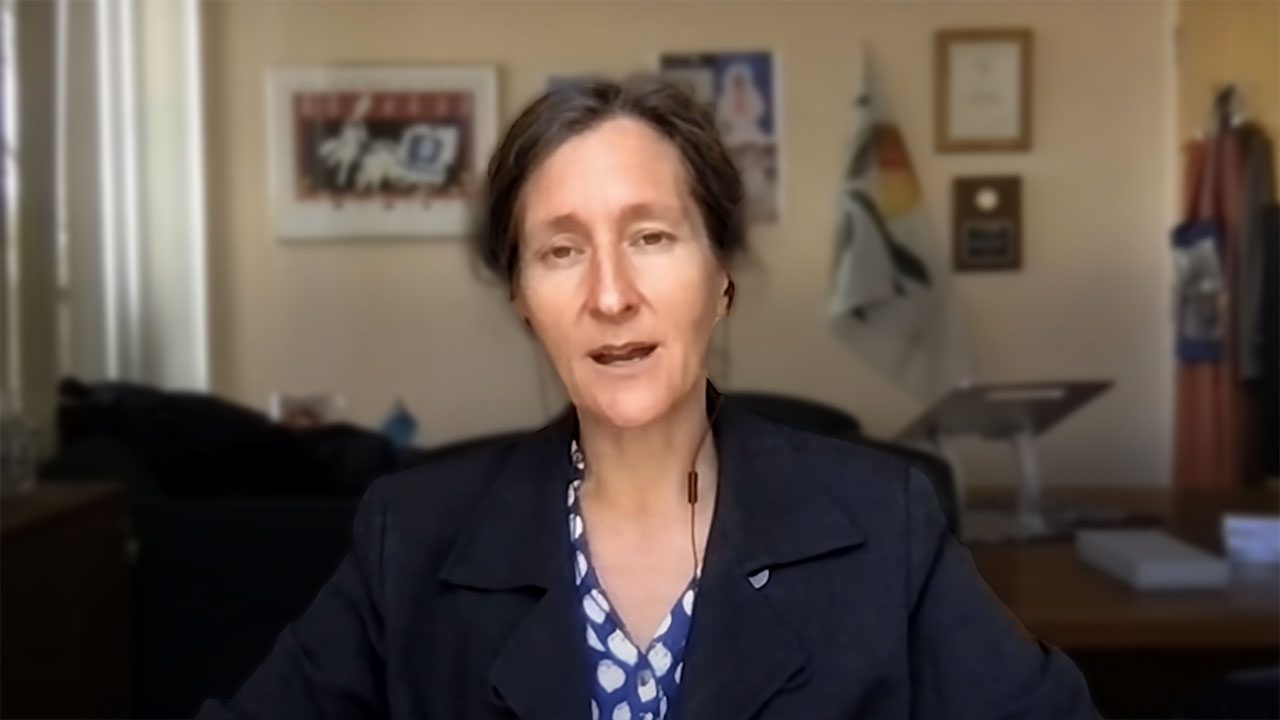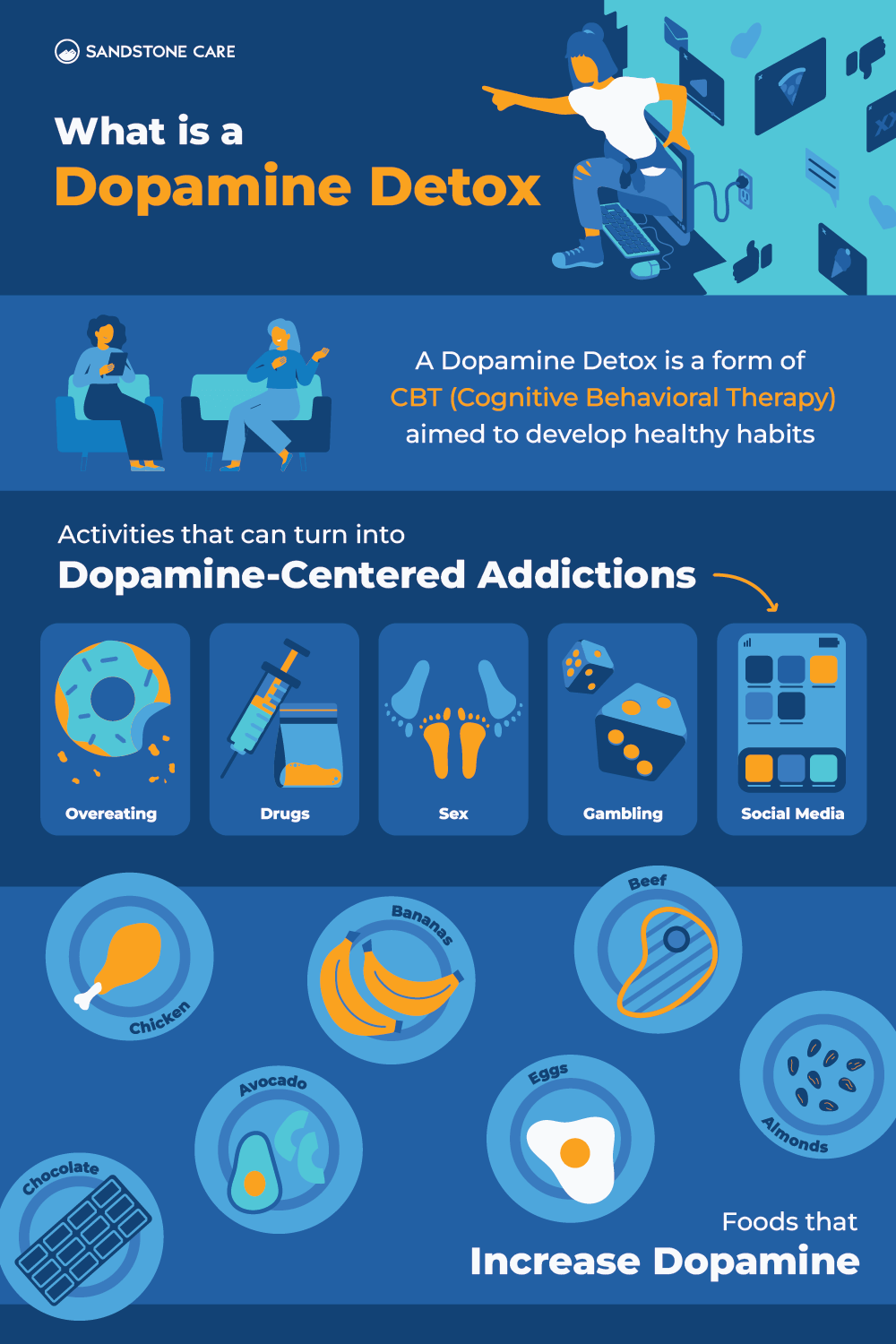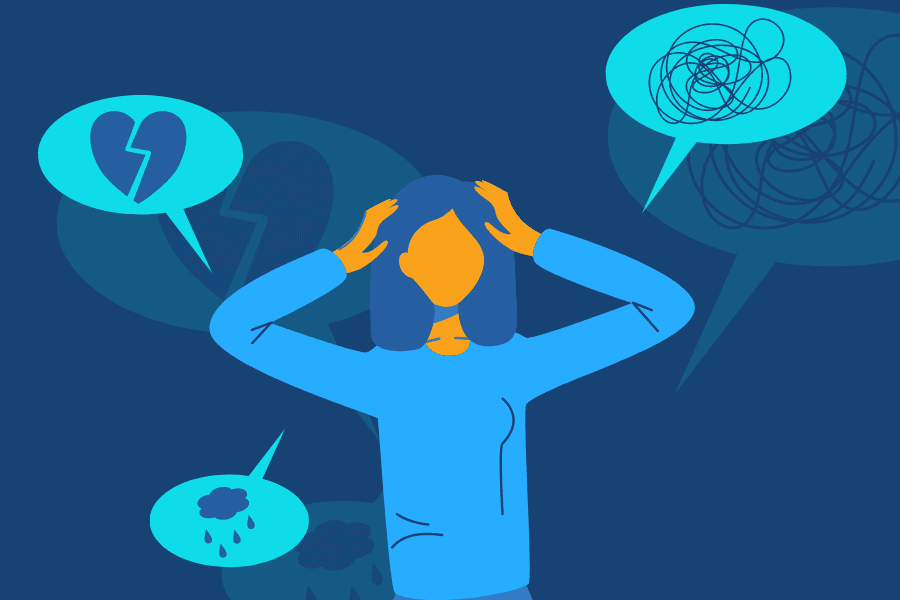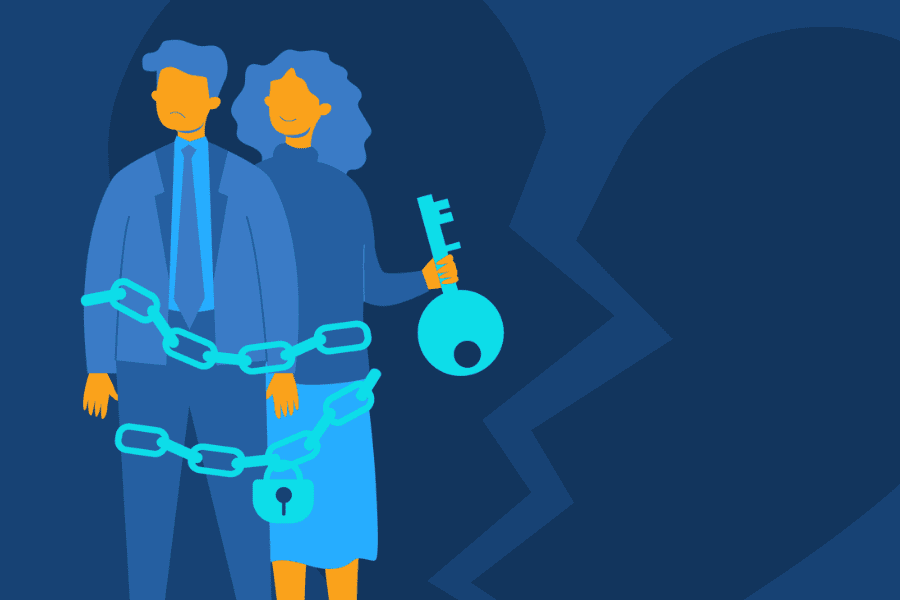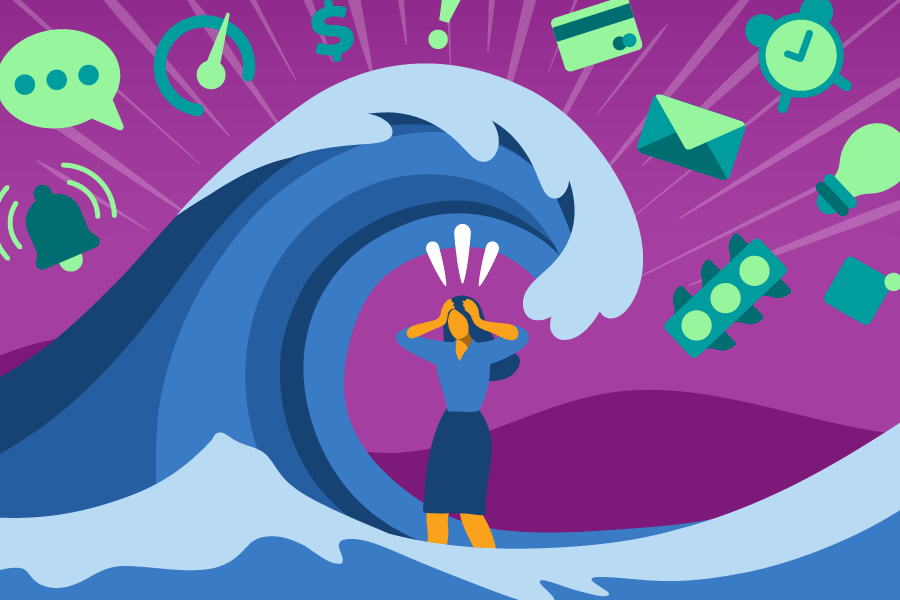What Is A Dopamine Detox
What Is Dopamine Detox?
Dopamine detox, sometimes referred to as dopamine fasting, is a cognitive behavioral therapy (CBT) approach intended to help people with unhealthy ways of thinking and behaving to help them develop healthy practices.
Since dopamine causes “good feelings” in the brain, sometimes people can become overly motivated by dopamine rewards. However, having too much dopamine can actually make you feel worse in the long run.
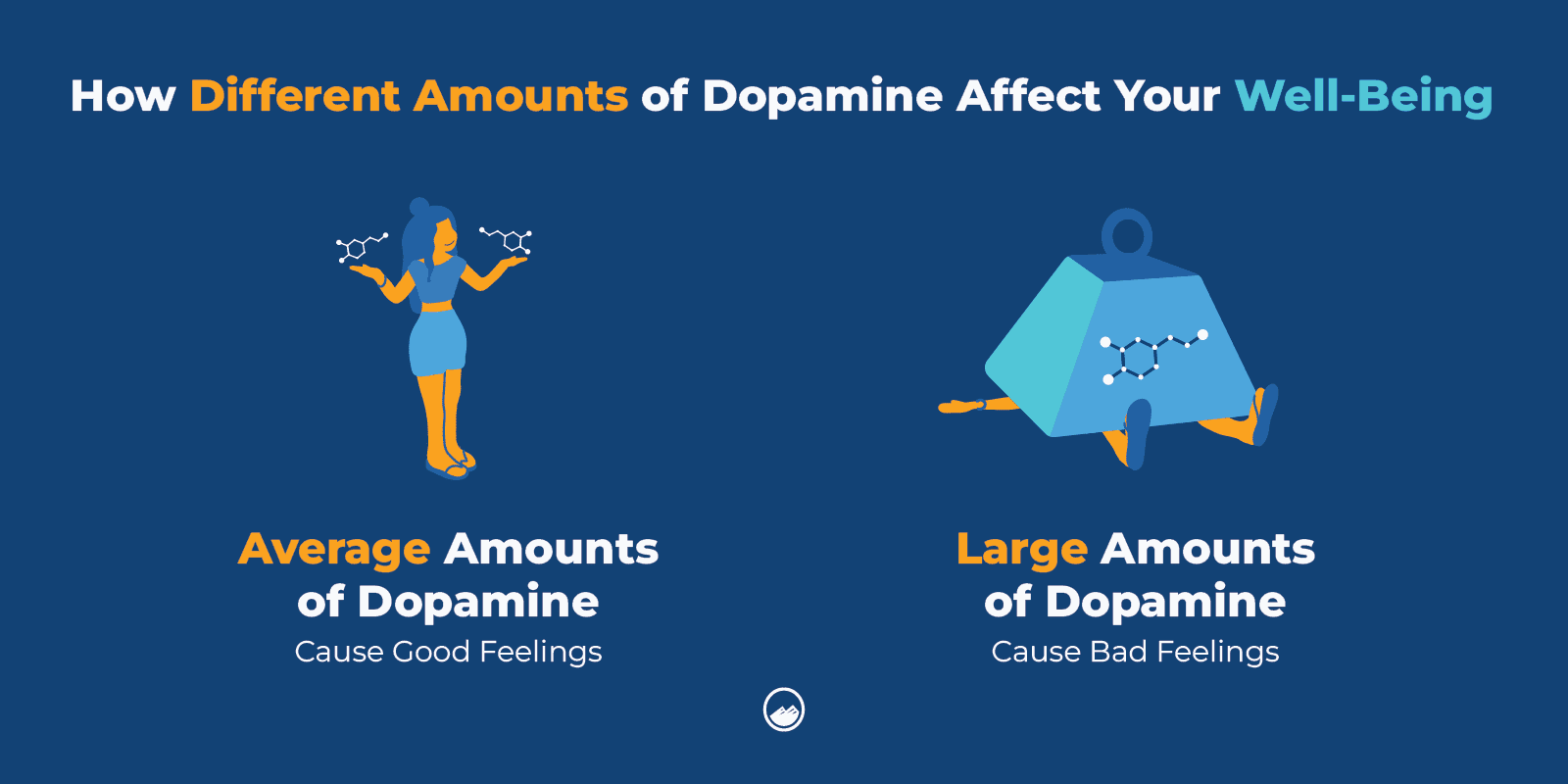
The process of a dopamine detox involves fasting from activities or pleasures that produce dopamine so that the drive for quick rewards decreases.
Some people may do a basic dopamine detox which lasts for a few hours or days, while others may go through a more extreme process that lasts for months.
Dopamine is naturally made by the brain. However, things like alcohol, caffeine, sugar, social media, video games, and substance use can sharply increase dopamine levels and lead to a type of addiction.
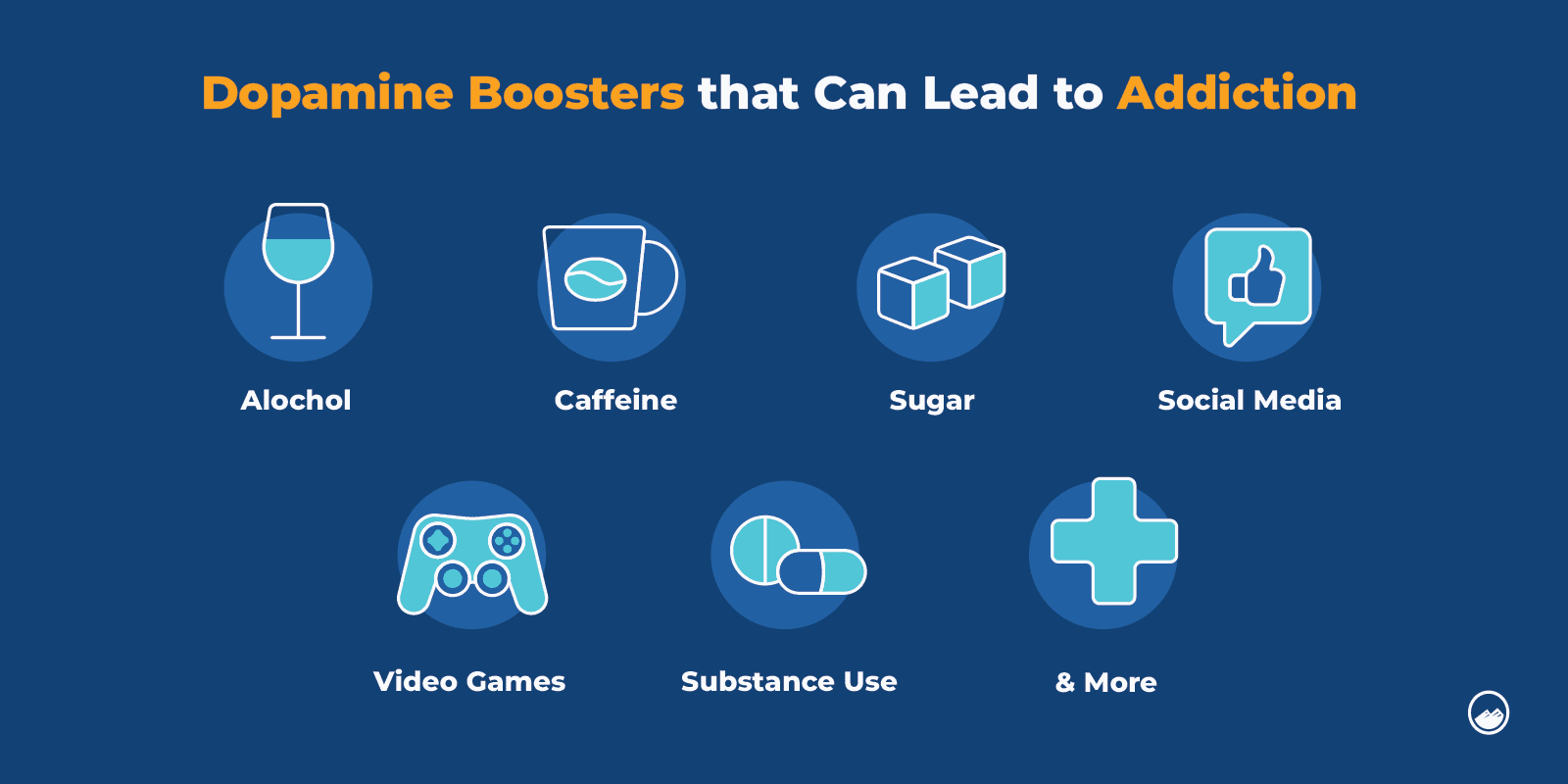
Overly high dopamine levels can cause negative side effects on a person’s mental and physical health. They may find themselves procrastinating for long periods of time or becoming agitated when they do not have access to rewards. Dopamine detoxes may help them learn how to self-regulate. By self-regulating their behaviors, they are able to gain control of their lives and reset their brains reward pathways.
What Happens If You Dopamine Detox?
In a dopamine detox, you would restrict addictive activities so that you could become more aware of what impulses feel like. After identifying the way your brain sends impulses, you can start to break out of those patterns.
Dopamine detox, as the name implies, does not mean a person abstains from anything that you find fun or pleasurable. There is actually no way to totally detox from dopamine because it is produced naturally in the brain. Dopamine is less like an enemy, and more like an enthusiastic house guest that stays over for too long if you don’t set the right boundaries.
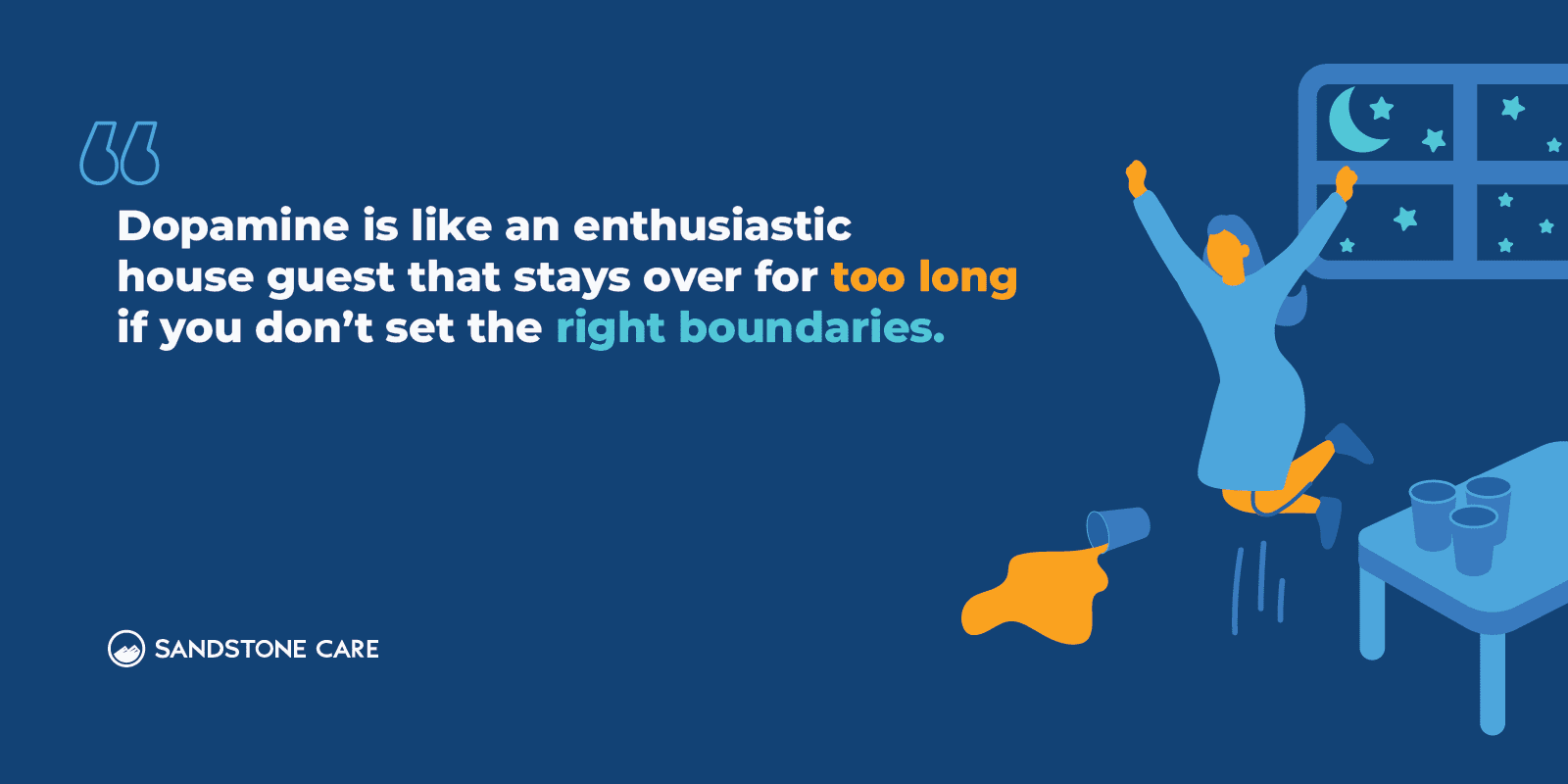
If you decide to try a dopamine detox, you will become more aware of your positive and negative habits. You will also learn how to identify, control, and replace addictive and impulsive behaviors. You may also find that you are able to delay gratification more easily.
What Are The Symptoms Of High Dopamine?
High dopamine can cause symptoms that can include:
- Anxiety
- High energy
- Mania
- Increased stress
- Insomnia
- Aggression or irritability
- Hallucinations
Do I Need To Stop Taking Dopamine For Dopamine Detox?
If you are taking medications that impact your dopamine levels, it is important to consult your healthcare provider before stopping any medications.
Stopping medications too quickly without careful advice from a medical professional can lead to withdrawal symptoms and other health complications. Make sure to talk to your doctor before attempting a detox so that they can collaborate with you on the healthiest way to move forward.
How Long Does It Take To Dopamine Detox?
Dopamine detoxes typically last around 90 days.
However, some people might try dopamine detoxes that last anywhere from a few hours to several days at a time.
Each person has a unique relationship with the reward system in their brain, so there is no one-size-fits all timeline for resetting your dopamine balance.
The time it takes to complete a dopamine detox is different for each individual depending on their specific needs and goals.
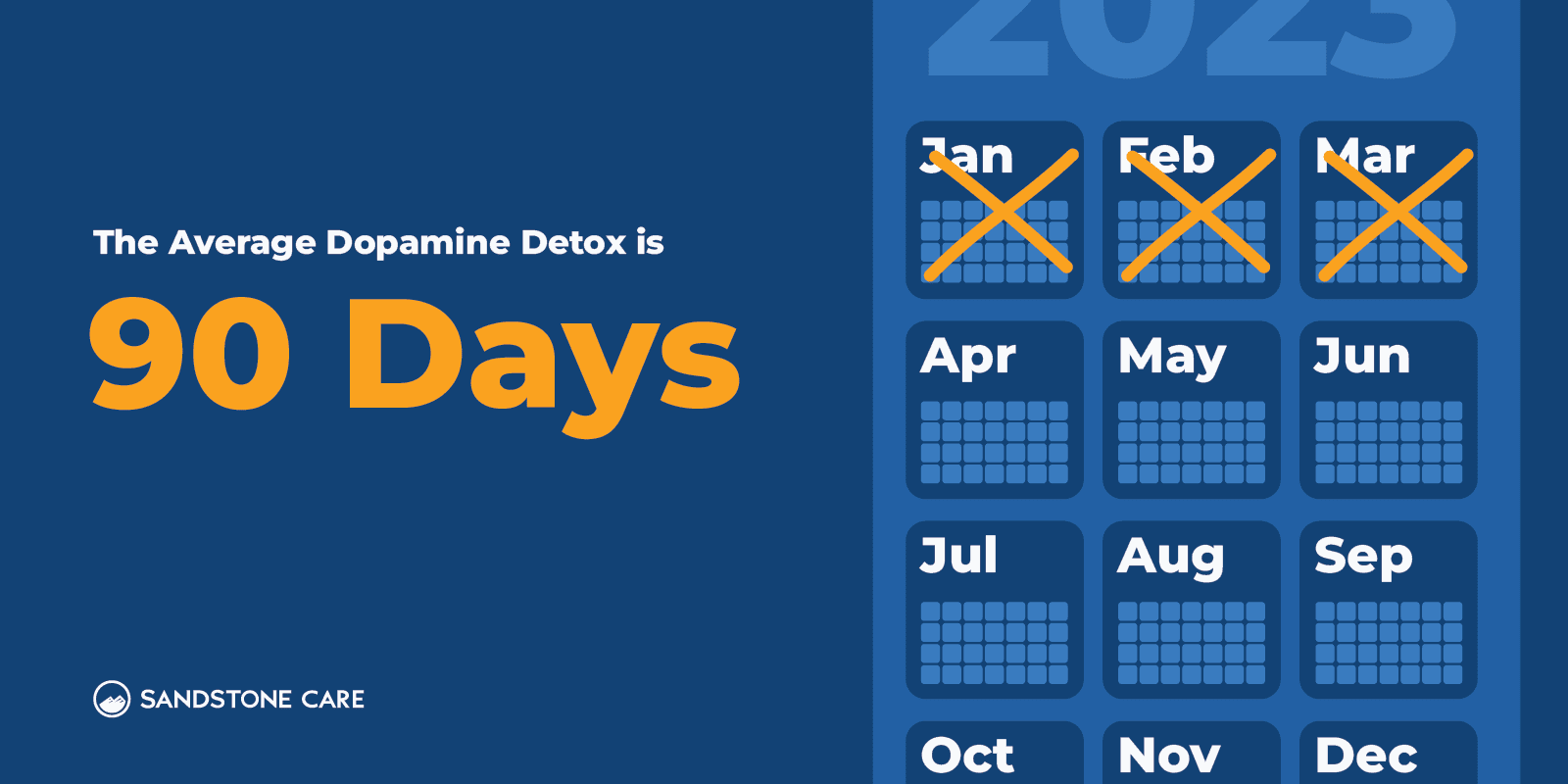
What is Dopamine?
What Does Dopamine Do?
Dopamine is an important neurotransmitter in the brain that plays an essential role in functions that include:
- Reward
- Motivation
- Memory
- Attention
- Regulation of body movements
How Is Dopamine Released?
Many different factors can trigger the brain to release dopamine.
Dopamine works with the reward center of the brain to help the body identify things that should be beneficial.
For early humans, dopamine helped them to feel rewarded when they found new food sources. It also helped them commit locations to memory so that they would be motivated to find them again.
Today, our brains do the same thing when we discover activities we like, foods we eat, and more. Unfortunately, since we have so much access to stimulating activities, such as scrolling social media, sometimes our bodies are not equipped to regulate the high amounts of dopamine that are released.
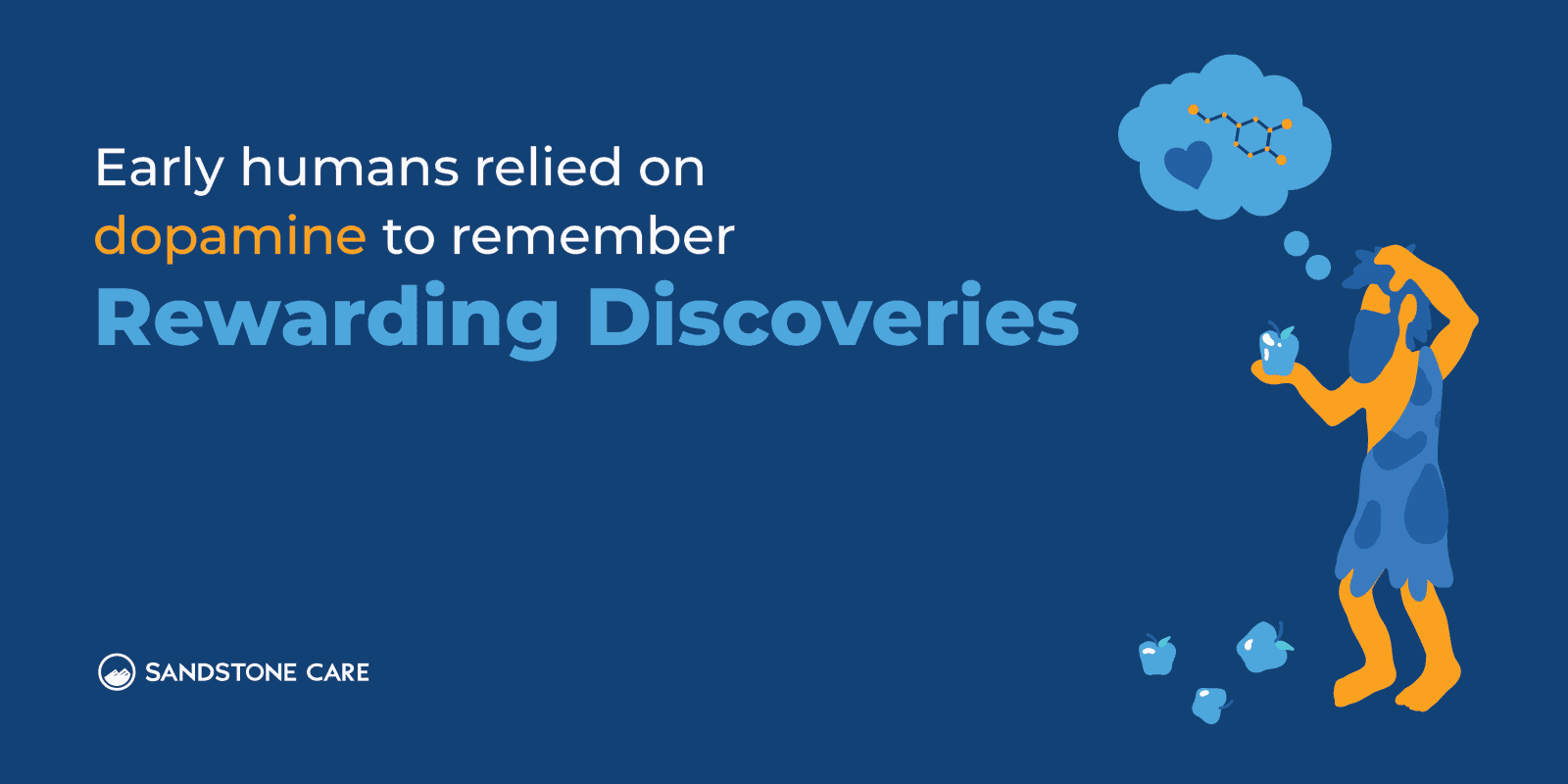
What Triggers Dopamine Release?
Many different factors can trigger dopamine release.
Often, it involves activities that are healthy for you, such as:
- Exercising
- Eating well
- Getting enough sleep
- Meditating
- Getting a massage
However, some activities can put you at risk for producing more dopamine than your body is able to handle. This can create addictive patterns that harm your mood, energy levels, and relationships with others.
For example, social media can provide dopamine when you feel entertained or connected to loved ones. However, the never-ending stimuli from pictures and videos from apps like TikTok, Facebook, or Instagram can overload your brain’s reward center and lead to social media addiction.
Some common activities that can turn into dopamine-centered addictions include:
- Overeating
- Constant social media use
- Sex addiction
- Drug addiction
- Gambling
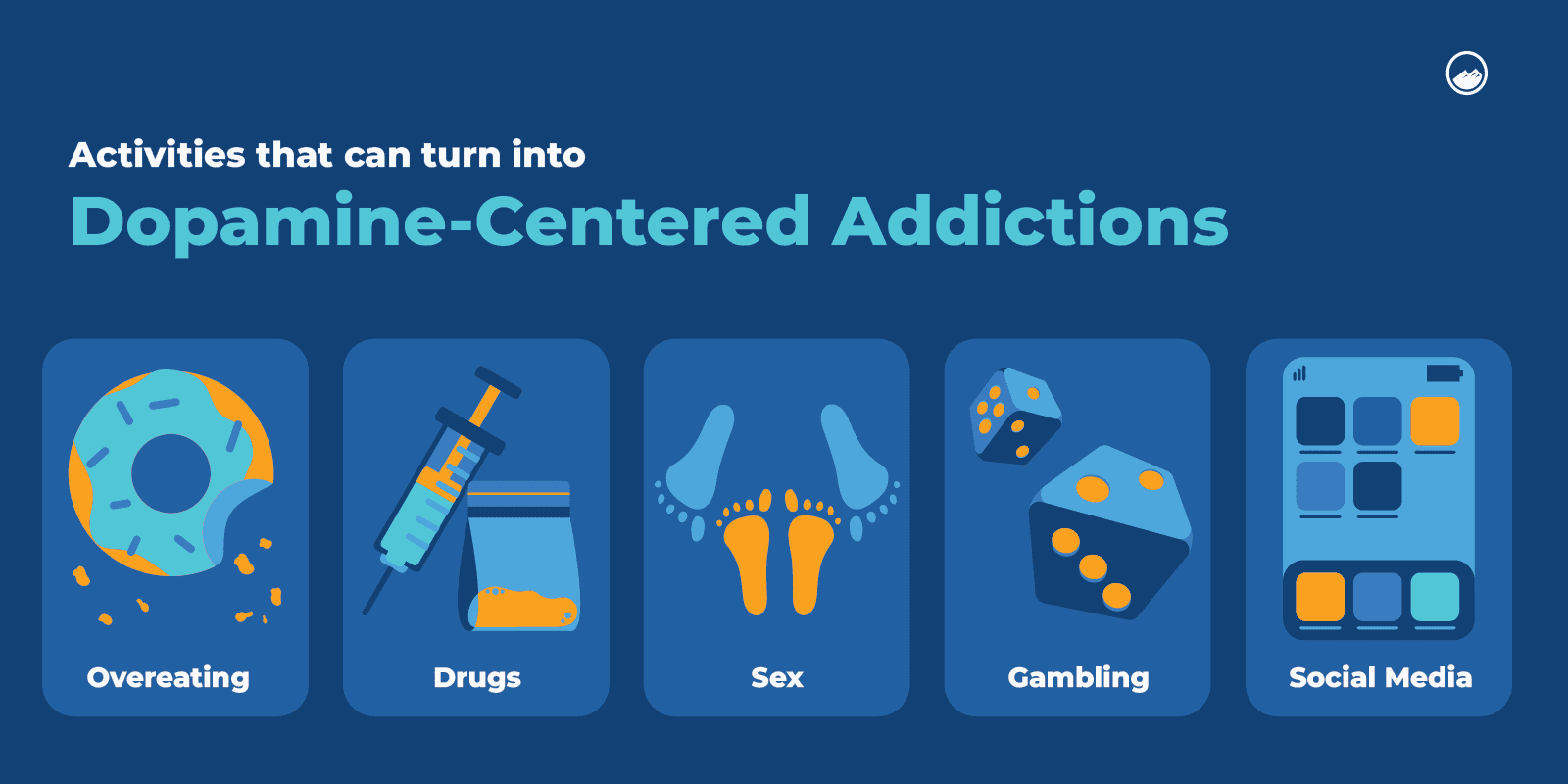
What Does Dopamine Do For A Person?
Dopamine plays an important role in allowing a person to feel pleasure, satisfaction, and motivation.
It also helps to regulate important brain functions that affect mood, learning, sleep, movement, and much more.
Dopamine Detox Benefits
What Does Dopamine Do To Make You Happy?
Dopamine is often referred to as a “feel-good” hormone because it is associated with the brain’s reward system and produces feelings and sensations of pleasure.
So why would you be interested in detoxing from dopamine if it produces pleasant sensations? When the body gets too much dopamine from different activities, it can start to require more and more dopamine to create those “good feelings”.
This can cause your default mood levels to drop when you aren’t getting the same “hits” of the chemical. This means that too much dopamine can actually make you feel worse and more unhappy over time.
But working to balance your dopamine levels helps to promote both mental and physical health and a person’s overall well-being.
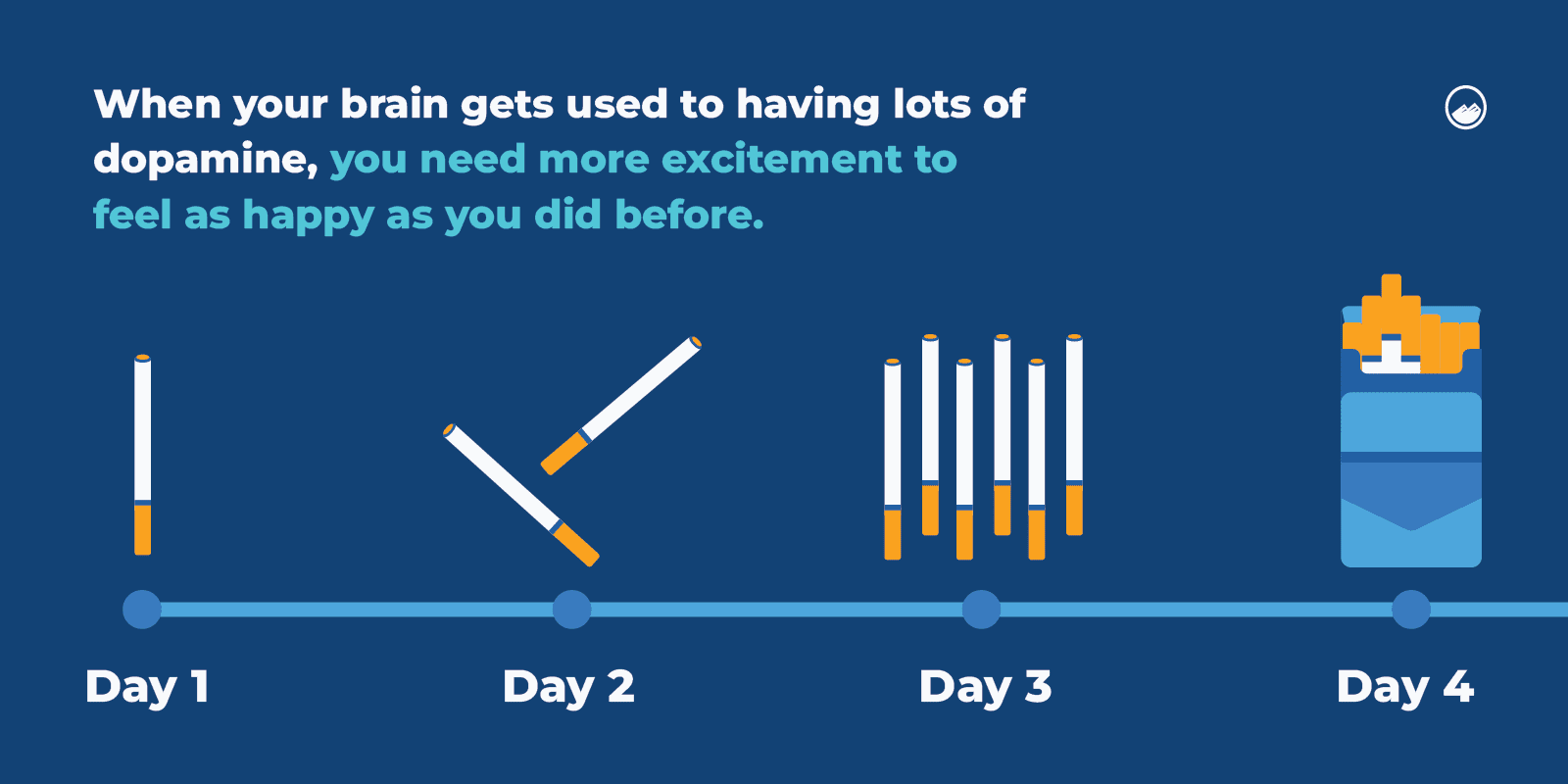
What Does A Dopamine Detox Do?
The idea of the dopamine detox was developed by Dr. Cameron Sepah, who intended to help people manage addictive behaviors.
A dopamine detox can help a person identify and become more aware of unhealthy and addictive behaviors in their life that are negatively impacting them.
During a dopamine detox, people learn new ways to reduce impulsive behaviors and practice healthy ones.
This can help them to have more control over their time, which promotes a more balanced lifestyle.
Does Dopamine Detox Increase Productivity?
Some people may find themselves in an unhealthy cycle of addictive or compulsive behaviors that affect their performance at work, school, personal life, and relationships.
Going through a dopamine detox may help to increase productivity because they can learn to replace distracting behaviors with healthy and productive ones.
Dopamine Detox Side Effects
How Do You Feel After Dopamine Detox?
Once a person completes a dopamine detox, they may feel more balanced and less triggered by tempting activities.
They often find themselves thinking more clearly and positively. They also tend to experience less stress and less negative feelings because the body is not craving unhealthy rewards.
What Are The Side Effects Of Dopamine Detox?
As with any detox, some people may experience withdrawal symptoms as their dopamine levels return to normal.
Both the brain and body will begin craving the rewards that are not being given during the detox, which can lead to side effect like:
- Depression
- Anxiety
- Lack of motivation
- Headaches
- Irritability
- Restlessness

Take the Quiz
See if you or a loved one needs substance use or mental health support
Developed by Chief Clinical Officer Sarah Fletcher LPC
Does Dopamine Detox Make You Happier?
The habits learned in dopamine detox can help a person do new things in their daily lives that help them feel happier, calmer, and more in control.
However, the results of a dopamine detox can differ from person to person and depend on each individual.
Can Dopamine Detox Make You Depressed?
A person undergoing a dopamine detox may experience dopamine withdrawal symptoms, including anxiety, panic attacks, or depression.
Dopamine detox doesn’t work the same for everyone.
Some may find that a dopamine detox made things worse for them rather than making them better.
Because of this, it is important to find support from a mental health professional if you are facing challenges in your everyday life.
How To Increase Dopamine Naturally
What Activities Release the Most Dopamine?
Activities such as exercising, listening to music, meditating, and spending time outdoors and under the sun can help release dopamine in the brain.
Getting enough sleep is also believed to boost dopamine levels. While activities such as social media can trigger extremely high amounts of dopamine, it is important to find sustainable and healthy activities that can improve your mood without leading to addiction.
If you are looking for a way to start boosting your dopamine levels healthily, you can try to revisit your favorite hobbies, connect with loved ones, or volunteer in your community.
Which Foods Increase Dopamine?
The production of dopamine requires the protein L-tyrosine, which is found in many foods, including:
- Almonds
- Avocados
- Bananas
- Eggs
- Chicken
- Chocolate
- Beef
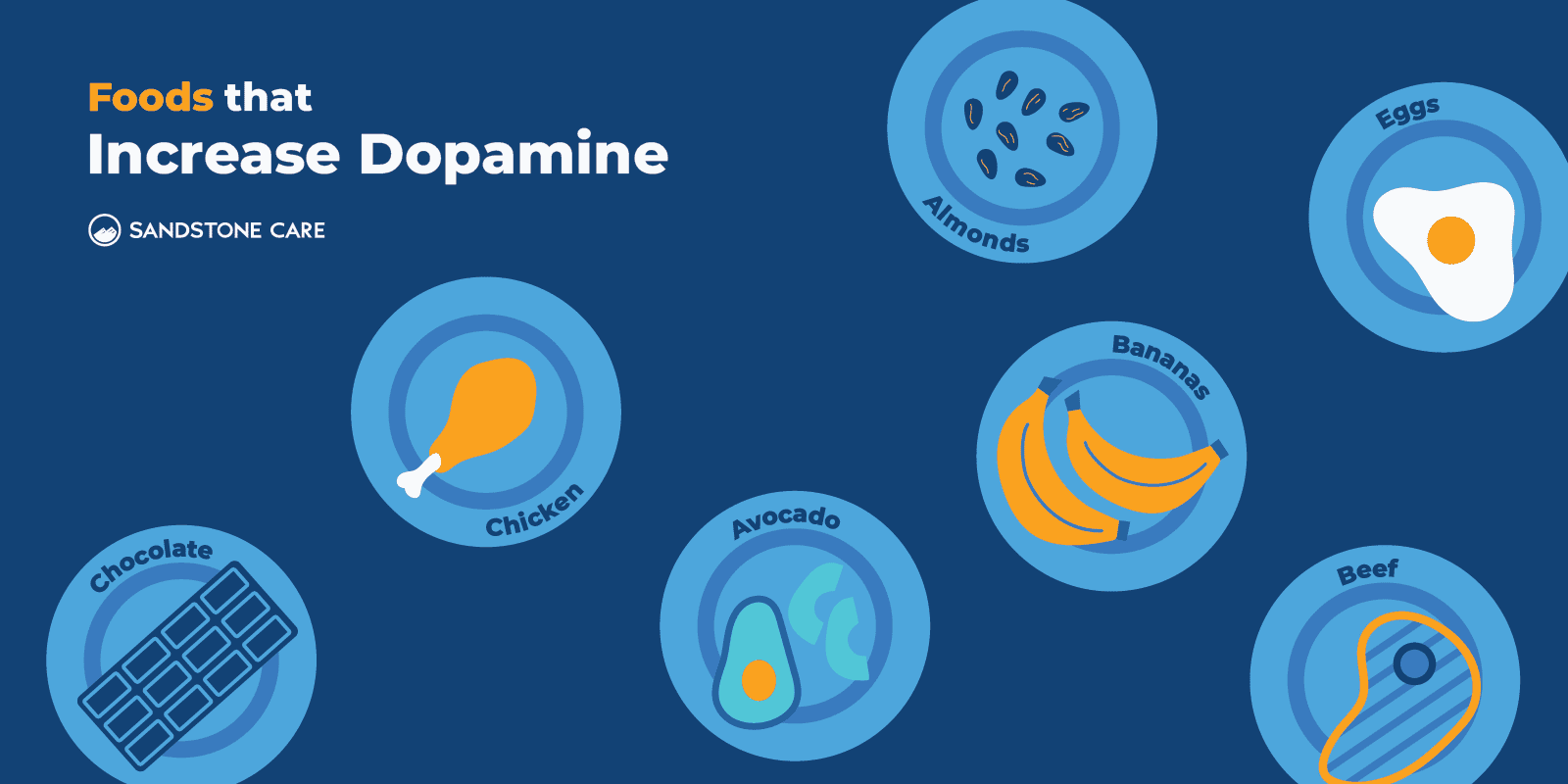
Do Cold Showers Increase Dopamine?
Research suggests that “exposure to cold can activate the sympathetic nervous system and increase the blood level of beta-endorphin and noradrenaline.”
Individuals experiencing symptoms of depression may find some relief from cold showers, cold hydrotherapy, or cold plunges.
It is believed that cold can increase dopamine because of the body and brain’s response to being exposed to cold temperatures. By incorporating cold showers into your daily routine, you can help use this “survival response” to improve your mood and overall wellness.
Does Marijuana Increase Dopamine?
According to the National Institute on Drug Abuse, marijuana, like other substances, stimulates the reward system to release dopamine at higher levels.
However, high levels of dopamine can cause the brain to want to repeat the rewarding behavior, leading an individual to seek recreational drugs repeatedly.
What Activities Release Dopamine?
Maintaining a balanced diet and lifestyle can greatly impact your body and brain’s natural production and release of dopamine.
Incorporating healthy activities in your routine, like eating balanced meals, spending time outside, and getting physical exercise can all help trigger the natural release of dopamine.
What Music Causes Dopamine Release?
Humans have this special ability to feel pleasure from unique patterns of auditory or visual stimulation, like music.
One study found that listening to your favorite music can induce dopamine release in striatal regions of the brain.
Does Loud Music Increase Dopamine?
According to a study from eLife, the louder the sound exposure was, the more of this enzyme was present, which is essential in making dopamine.
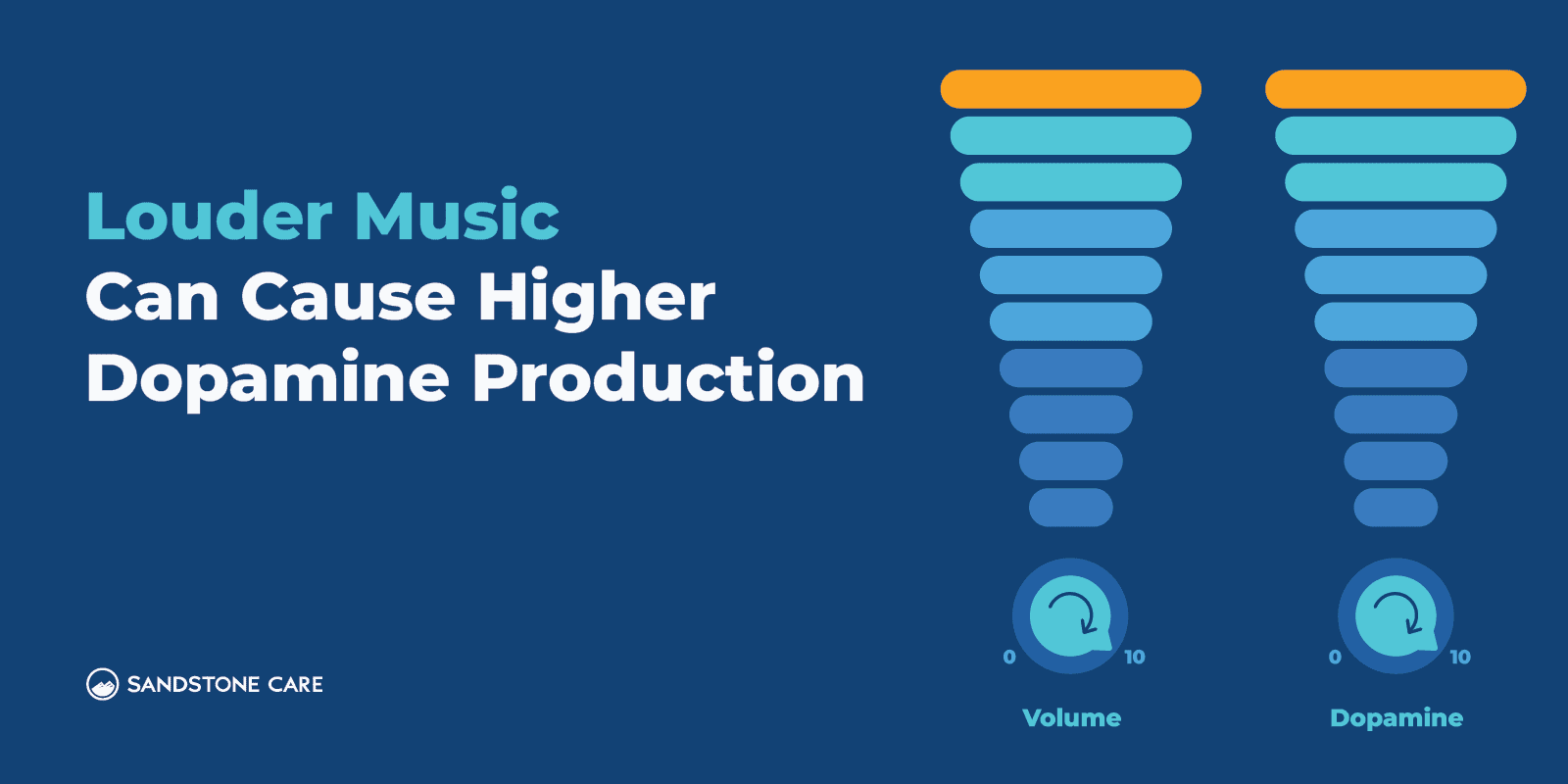
How To Dopamine Detox
Dopamine detox can be different for each individual.
For those who have unhealthy habits that take up their everyday lives, a dopamine detox may help to learn new habits that you can implement to promote a healthy, balanced lifestyle.
Dopamine detox can be hard, as it challenges individuals to step out of their comfort zone and daily routine in order to break unhealthy habits. These new changes may feel weird, and it can be frustrating not being able to do the things you are used to.
After a dopamine detox, sometimes you don’t immediately feel better.
Some people may experience some withdrawal symptoms and experiencing feelings of a low mood or anxiety, while others see positive effects faster.
When a dopamine detox is over, it is important to maintain the healthy habits you learned and implement them into your daily life.
Focusing on eating healthy foods, exercising, getting sunlight, meditating, and spending time with loved ones are all things that can help you keep your dopamine levels balanced and maintained.
What Is The Fastest Way To Reset Dopamine?
Learning healthy habits that work for you can help you quickly reset dopamine.
For example, if you find yourself falling into the habit of mindlessly scrolling on social media and are experiencing negative effects from it, you may consider resetting and doing things like:
- Going outside for a walk
- Turning off notifications
- Getting physical exercise
- Practicing mindfulness and meditation
- Journaling
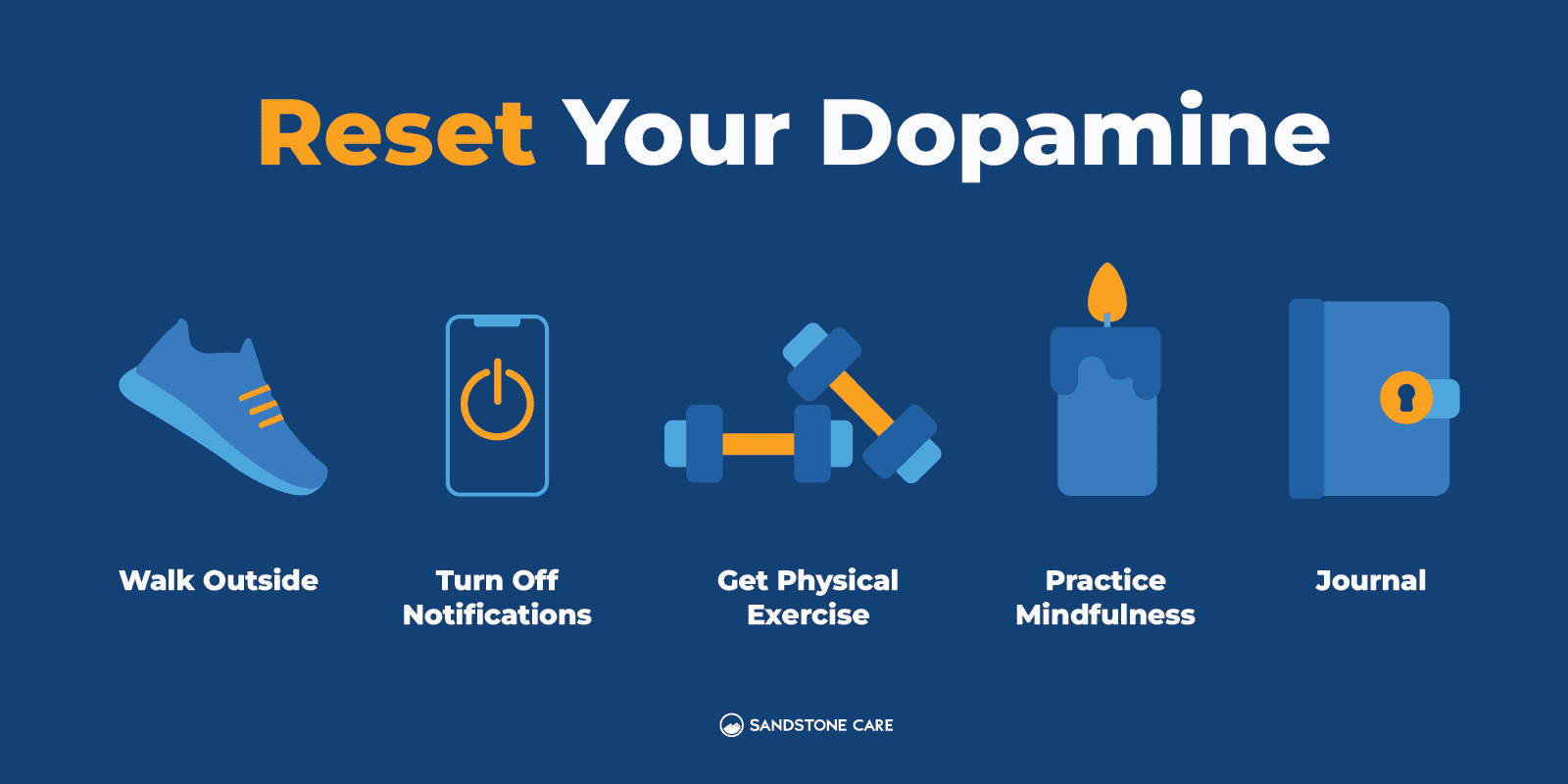
How Long Does It Take To Dopamine Detox?
Typically, a dopamine detox is advised to span about 90 days.
However, there are some who find that even a few hours or a couple of days can yield positive results.
What Is The 21-Day Dopamine Detox?
The 21-day dopamine detox involves fasting from certain pleasurable activities that instantly trigger dopamine to reset the brain’s neurochemical system.
What Are Some Tips For Dopamine Detox?
One way to detox from dopamine is to make it harder to participate in activities you find give you mindless rewards.
In order to do this, it can be helpful to:
- Put something out of reach or sight
- Using apps or software to help block the activity
- Making it inconvenient or difficult to get to
Another dopamine detox tip is to pick alternatives that you think you could enjoy, such as:
- Exercising
- Drawing or writing
- Reading
- Meditating
- Spending time with a loved one
It is also important to identify the root cause that may be contributing to the unhealthy behaviors.
Spending time with yourself and doing things like meditating or journaling can help you understand where your feelings may be coming from.
Lastly, reaching out for professional medical advice is important if you face mental health or substance use challenges.
Dopamine detox is considered a form of cognitive behavioral therapy, which is best done under the guidance of a trained professional.
Working with a therapist or mental health professional can help you go through a dopamine detox more effectively and safely.
Dopamine Withdrawal
What Does Dopamine Withdrawal Look Like?
A person experiencing dopamine withdrawal may be extremely fatigued and experience low moods, agitation, and irritability.
They may also have panic attacks or experience physical symptoms such as drug cravings, pain, nausea, or orthostatic hypotension, according to Clinical Parkinsonism & Related Disorders.
How Do You Know If You Have Low Dopamine?
Some of the more common signs of low dopamine can include:
- Anxiety
- Forgetfulness
- Feelings of anger or irritability
- Impulsiveness
- Lack of organization
- Social withdrawal and isolation
- Reduced emotions
- Gastrointestinal problems
What Does Low Dopamine Feel Like?
When a person has low dopamine levels, they may experience depression and low moods.
It is common to feel tired often, lack motivation, and have difficulty concentrating or focusing on everyday things.
How Long Do Dopamine Withdrawal Symptoms Last?
For some, dopamine withdrawal symptoms may last for days, while others may experience withdrawal symptoms that last for months to years.
How Do You Counteract Dopamine Withdrawal?
Some ways to counteract or manage dopamine withdrawal can include:
- Getting enough sleep
- Exercising
- Practicing mindfulness
- Eating a balanced diet
- Spending time in the sun
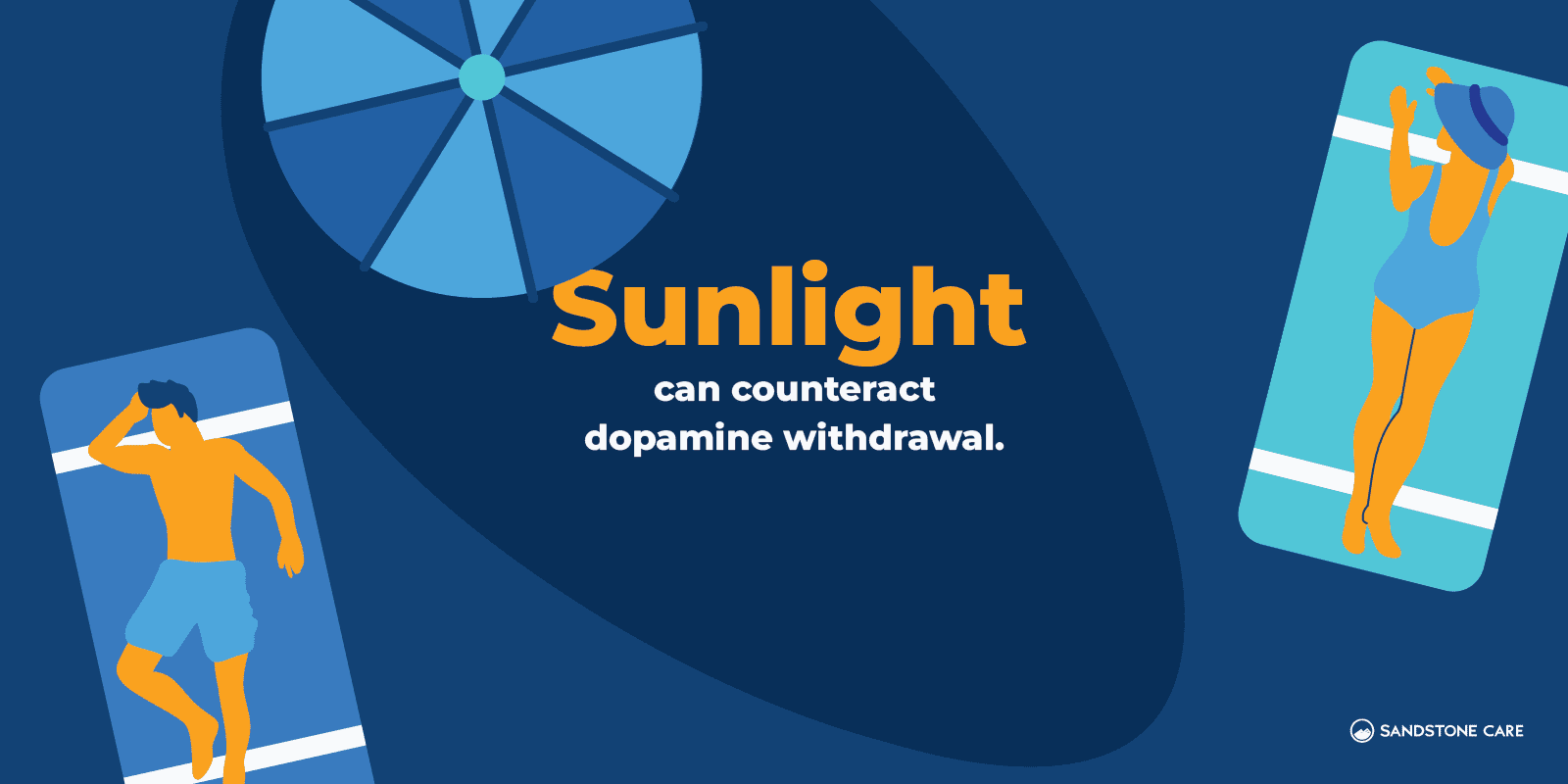
How Do You Taper Off Dopamine Agonists?
Dopamine agonists are a medication used to stimulate areas of the brain that are influenced by dopamine.
“Tapering” refers to slowly decreasing the dosage of a medication or drug a person is taking to help safely manage potential withdrawal symptoms.
Typically, a healthcare provider may start by reducing the dose of dopamine agonists by 20% to 25% every week.
However, this rate can be more or less based on each individual.
FAQ
You Have Questions. We Have Answers.
Our goal is to provide the most helpful information. Please reach out to us if you have any additional questions. We are here to help in any way we can.
Certain maladaptive behaviors may be harming a person’s mental health and could be an indicator that they may be getting these unhealthy “hits” of dopamine.
Some activities that can become bad habits and impact a person’s dopamine levels can include:
- Binge-watching
- Excessive internet usage
- Emotional eating
- Scrolling on social media apps
- Masturbation
The main idea of dopamine detox is to avoid activities that provide these instant “hits” of dopamine.
It is typically recommended that a person abstains from most forms of technology and screens, including using them to access music.
Other alternatives that you can do to listening to music could be reading books, exercising, talking to other people, going for walks, or cooking.
If you have attention-deficit/ hyperactivity disorder (ADHD), dopamine detox may help or can make things worse.
Some people with ADHD may find that decreasing behaviors associated with impulsivity can be helpful in managing their symptoms.
However, other individuals with ADHD may find dopamine detox overwhelming and disruptive to their lives.
Individuals with ADHD often find relief in structure, and dopamine detox may disrupt this and cause more stress for them.
There is no cure for ADHD, but some individuals may find dopamine detox to be helpful in managing symptoms and everyday life.
Alcohol can increase the production of dopamine initially, but over time, it can cause an overload of dopamine in the brain.
Additionally, the release of dopamine from alcohol can cause a person to continuously seek more and more of it to produce those same pleasurable effects, according to Alcohol Health and Research World.
The overload of dopamine caused by continued alcohol use can also negatively affect a person’s physical and mental health.
There are currently no scientific studies or evidence that support the method of dopamine detox.
The name itself can also be misleading, as a dopamine detox doesn’t actually decrease your natural levels of dopamine, and there is no way to detox from dopamine.
The results that come from a dopamine detox seem to be based on each individual and depend on a variety of different factors. Therefore, more research is needed to determine if dopamine detox could be an effective approach or if it is just a fad.
5 habits that you can try to integrate into your everyday life to boost dopamine levels can include:
- Getting good sleep
- Meditating
- Eating a balanced diet
- Exercising
- Spending time outdoors and in the sun
It is important that even after you do a dopamine detox, to maintain healthy habits, you learn to promote balanced levels of dopamine in both the brain and body.


Let’s take the next steps together
Dopamine detox involves abstaining from activities or pleasures that produce “hits” of dopamine and replacing them with new, healthy habits. Sandstone Care is here to support teens and young adults with mental health and substance use disorders.

